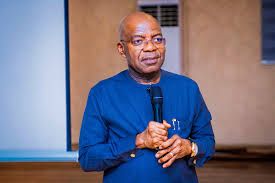
The lack of phycologists on Team Nigeria has been cited for the team’s poor performance in the 2024 Summer Olympics in Paris.
Professor Clement Fasan, who presented the lead paper at the Sports Phycologists Association of Nigeria’s Annual National Conference on Wednesday at the National Institute in Lagos, stated that Nigeria would have done better if Team Nigeria had been affiliated with Sports Phycologist.
Speaking under the theme: Optimizing Athletes Performance and Wellbeing: Challenges for Sports Stakeholders in the 21st Century, Professor Fasan said” We cannot talk of optimizing athletes’ performance without their well-being or welfare. Athletes are fragile and have expiring dates. They are susceptible to injury which can be vital and cut short their career. We must develop programs and incentive methodologies to cater for their well-being and welfare. Without the help of Phycologist, the athletes cannot achieve much”
Speaking in the same vein, Professor Seun Omotayo said” Both success and failure needs to be managed.
Tobi Amusan failure was due to lack of Phycological management. Sports is scientific without which talent and technique would not count for much. Coaching is an integral part of coaching philosophy.
In his own remarks, Director-General National Institute for sports Professor Olawale Moronkola said the event is coming at a most auspicious time when Nigerian Sports is under scrutiny due to the poor performance in Paris. The theme is timely in the quest of all stakeholders in sports industry to propel better the fortunes of sports in all ramifications on Nigeria for better podium success in national and international competitions. We must take advantage of this event to correct alot of things that has gone wrong in our sports.





